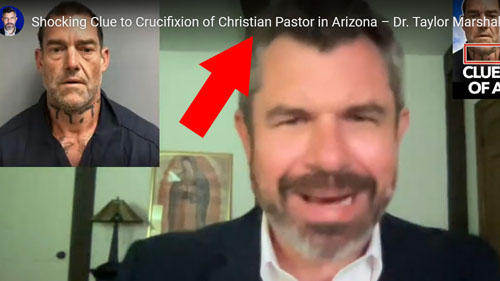| Recent Featured Videos and Articles | Eastern “Orthodoxy” Refuted | How To Avoid Sin | The Antichrist Identified! | What Fake Christians Get Wrong About Ephesians | Why So Many Can't Believe | “Magicians” Prove A Spiritual World Exists | Amazing Evidence For God | News Links |
| Vatican II “Catholic” Church Exposed | Steps To Convert | Outside The Church There Is No Salvation | E-Exchanges | The Holy Rosary | Padre Pio | Traditional Catholic Issues And Groups | Help Save Souls: Donate |  |









 " />
" /> " />
" /> " />
" /> " />
" /> " />
" />




St. Thomas Aquinas & "Baptism of Desire"
St. Thomas Aquinas, despite all of his fabulous writing and learning about the Catholic Faith, being a fallible human being, was wrong on many points, including his explicit statement in the Summa Theologica that “The flesh of the Virgin was conceived in Original Sin.”[1] One scholar noted that the book St. Thomas was writing when he died was called The Compendium of Theology, in which are found at least nine explicit errors.[2] In fact, “over thirty years ago, Dr. Andre Daignes, Professor of Philosophy in Buenos Aires, Argentina, pointed out twenty-four formal errors in the Summa of St. Thomas.”[3] This simply proves again that the theological speculations of even our greatest sainted theologians are just that – fallible speculations. Only St. Peter and his successors, the popes, when speaking from the Chair of Peter, have the unfailing faith.
In Summa Theologica III, Q. 66, Art. 11, St. Thomas tries to explain his belief in baptism of desire and blood. He tries to explain how there can be “three baptisms” (water, blood and desire) when St. Paul declares in Ephesians 4:5 that there is only one. He says:
With all due respect to St. Thomas, this is a feeble attempt to answer the objection as to how there can be “three baptisms” when God reveals that there is only one. It is feeble because St. Thomas says that the other two baptisms, desire and blood, are included in the baptism of water; but this is false. One who receives baptism of water doesn’t receive baptism of desire and baptism of blood, even according to the baptism of desire advocates. Therefore, it is false to say, as St. Thomas does, that the other two baptisms are included in the baptism of water; they most certainly are not.
Furthermore, in teaching the theory of baptism of desire, St. Thomas repeatedly admitted that neither is a sacrament.
The fierce baptism of desire advocate, Fr. Laisney, admits the same in his book, Is Feeneyism Catholic?, p. 9:
But the Council of Trent (a few centuries after St. Thomas, in 1547) infallibly defined as a dogma that THE SACRAMENT OF BAPTISM is necessary for salvation!
So, whom does one follow, St. Thomas or the infallible Council of Trent? Compare the two:
There is an obvious contradiction here. The fallible St. Thomas Aquinas says that it is possible to obtain salvation without the Sacrament of Baptism, while the infallible Council of Trent defines that the sacrament is necessary for salvation. And what does “necessary” mean? According to Part III, Q. 68, A. 2, Obj. 3 in St. Thomas’ own Summa Theologica, “that is necessary without which something cannot be (Metaph. V).”[10] Thus, “necessary” means without which something cannot be. Thus, salvation cannot be – it is impossible – without the Sacrament of Baptism (de fide, Council of Trent). Catholics must accept this truth and reject St. Thomas’s fallible opinion in the Summa Theologica on baptism of desire.
And just in case anyone argues that one can receive the Sacrament of Baptism without water, I will quote the Council of Trent’s definition in Can. 2.
Endnotes:
[1] St. Thomas Aquinas, Summa Theologica, Pt. III, Q. 14, Art. 3, Reply to Obj. 1.
[2] Michael Malone, The Only-Begotten, p. 395.
[3] Michael Malone, The Only-Begotten, p. 70.
[4] Denzinger 1837.
[5] St. Thomas Aquinas, Summa Theologica, Part III, Q. 66, A. 11.
[6] St. Thomas Aquinas, Summa Theologica, Part III, Q. 66, A. 11, Answer 2.
[7] Fr. Francois Laisney, Is Feeneyism Catholic?, p. 9.
[8] Denzinger 861; Decrees of the Ecumenical Councils, Vol. 2, p. 685.
[9] Denzinger 861; Decrees of the Ecumenical Councils, Vol. 2, p. 685.
[10] St. Thomas Aquinas, Summa Theologica, Part III, Q. 66, A. 2, Obj. 3.
[11] The Papal Encyclicals, Vol. 1 (1740-1878), p. 29.
[12] The Papal Encyclicals, Vol. 4 (1939-1958), pp. 178-179.
[13] The Papal Encyclicals, Vol. 3 (1903-1939), p. 92.
[14] Denzinger 858.
Sign up for our free e-mail list to see future vaticancatholic.com videos and articles.
Recent Content
^